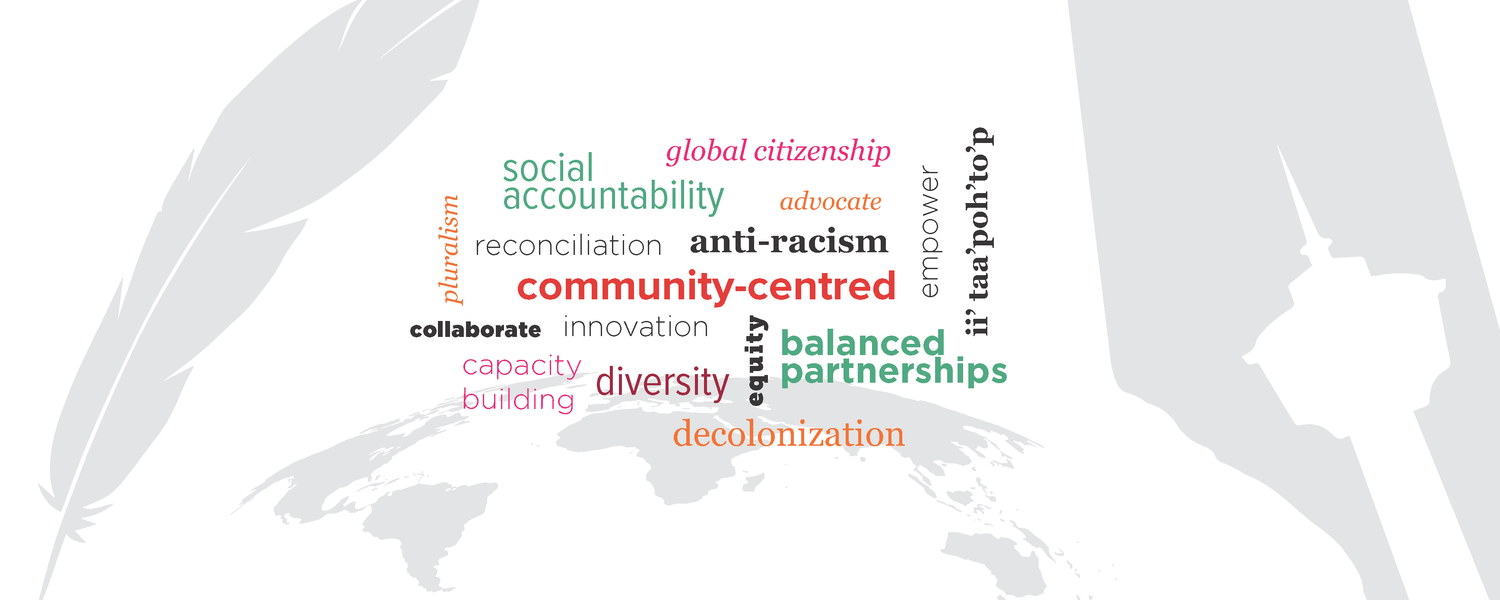
Student Reflection
Researching Social Innovation’s Role in Healthcare
My work with Dr. Bharwani, director, public policy, Indigenous, Local and Global Health Office, and Dr.
Lisa Allen Scott, Alberta Health Services, Healthy Community Hubs, investigated Social Innovation in
Health. An emerging topic of interest for academic institutions is the use of social innovation to solve
issues that might be relevant to their internal and external communities. Social innovation is a process
that encourages innovators to generate products, programs and other valuable propositions that are
built around a double bottom line: the traditional bottom lines of profit/productivity, and the social
bottom line of public good and social value.
We were interested in surveying how the Cumming School of Medicine could utilize social innovation as
a tool to support and engage staff and community partners to better address important issues. The
project itself focused on conceptualizing the theoretical basis for social innovation in the health sector.
There are unique features of the healthcare sector that position social innovation to be a great tool to
fill gaps within the system (ie. What government healthcare systems and profit healthcare companies
miss). It was interesting to note that very few others have investigated this unique position. This work
was important, because improving our conceptualization of social innovation in health is the first step to
better focusing our resources and efforts to making social innovation programs valuable. In a way, social
innovation that is not well positioned in a healthcare system may reproduce work that other actors have
core competencies in – unless we first conceptualize social innovation’s role in healthcare.
In addition to this conceptual work, we were also building a social innovation toolkit. The steps of social
innovation are often facilitated by curated toolkits – very few of which are oriented towards healthcare
personnel. We were interested in surveying the available tools (ie. Value proposition maps, business
plans, brainstorming tools), and attempting to curate them in a way that would be most helpful for
healthcare personnel. An exciting component of this work was meeting and speaking with leaders within
the Calgary social innovation community, to learn more about the tools they use, and how this enriches
their offerings.
Why I chose to work with Dr. Bharwani
Dr. Bharwani is known as a incredible mentor that cares for his trainees, and their personal
improvement. Over the course of my work with him, these became abundantly clear to me. Dr.
Bharwani has married his interest in healthcare with his passion for systems thinking and policy, and his
insight and passion for improving the CSM through strategic positioning was inspiring to see. For
students in the health sciences with a passion for the intersection between medicine and other fields,
working with Dr. Bharwani really expands our ideas of what is possible.
Despite being part of major efforts at the CSM, he still makes time to meet with his students on a
regular basis and contributes heavily to the projects. The consistent and continued mentorship (even
beyond the work term) was incredibly valuable. I learned so much about the interesting field of social
innovation and acquired new ways of thinking that Dr. Bharwani had encouraged.
How the experience affected my education and work experience
This unique experience is very rare for undergraduate students. The ability to be part of a research
project, that goes beyond basic biology or public health, and works at the intersection between health
and business was very interesting. It was also very exciting to be involved in an effort that was intended
to be implemented at the CSM – so very exciting!
A valuable aspect of this work was the effect on my perspective. Doing this work allowed me to better
understand system-thinking and understand how systems might look well into the future. By learning to
anticipate trends by landscaping the social innovation ecosystem, I like to think that I have developed a
capacity to capitalize on trends early in a defensive manner. This is a valuable perspective to gain, and
can inform the way that I view and evaluate efforts targeting social issues.
The work has dramatically changed my perspective of the healthcare sector. These experiences to really
conceptualize the system are rare and valuable. The ability to see the big picture in a unique way has
contextualized things well – from concepts I learn in class, to new articles that I read. In addition, the
insight I gained into social innovation has been a valuable addition to my personal skillset. I have been
able to apply much of those insights into my extracurricular work and hope to continue doing so in the future!
- Sunand | Biomedical Sciences | Bachelor of Health Sciences
